| Coach | NA |
| Venue | Marschwegstadion |
VfB Oldenburg Trivia
VfB Oldenburg predictions
Predictions for VfB Oldenburg: See upcoming and historic predictions for VfB Oldenburg below.
Disclaimer: Past performance does not guarantee future results. Betting involves risk; only wager what you can afford to lose. Always gamble responsibly.
VfB Oldenburg Opinions
 Who is the greatest VfB Oldenburg player of all time?
Who is the greatest VfB Oldenburg player of all time?
VfB Oldenburg latest results
| 27/05 | 2 - 1 | ||
| 21/05 | 1 - 2 | ||
| 13/05 | 1 - 3 | ||
| 07/05 | 0 - 1 |
3. Liga standings
| Rank | Team | MP | W | D | L | GF | GA | GD | Pts |
|---|---|---|---|---|---|---|---|---|---|
| 1 |
 Jahn Regensburg
Jahn Regensburg
|
32 | 17 | 9 | 6 | 47 | 34 | 13 | 60 |
| 2 |
 SSV ULM 1846
SSV ULM 1846
|
31 | 16 | 8 | 7 | 50 | 34 | 16 | 56 |
| 3 |
 Preussen Munster
Preussen Munster
|
32 | 15 | 10 | 7 | 55 | 41 | 14 | 55 |
| 4 |
 Dynamo Dresden
Dynamo Dresden
|
31 | 17 | 3 | 11 | 49 | 31 | 18 | 54 |
| 5 |
 SV Sandhausen
SV Sandhausen
|
32 | 14 | 10 | 8 | 50 | 43 | 7 | 52 |
| 6 |
 Erzgebirge AUE
Erzgebirge AUE
|
32 | 13 | 10 | 9 | 41 | 39 | 2 | 49 |
| 7 |
 Rot-weiss Essen
Rot-weiss Essen
|
30 | 14 | 5 | 11 | 45 | 44 | 1 | 47 |
| 8 |
 SpVgg Unterhaching
SpVgg Unterhaching
|
31 | 13 | 7 | 11 | 40 | 40 | 0 | 46 |
| 9 |
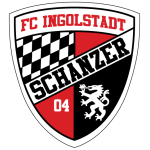 FC Ingolstadt 04
FC Ingolstadt 04
|
32 | 12 | 9 | 11 | 54 | 43 | 11 | 45 |
| 10 |
 Borussia Dortmund II
Borussia Dortmund II
|
32 | 12 | 9 | 11 | 46 | 46 | 0 | 45 |
| 11 |
 FC Saarbrücken
FC Saarbrücken
|
29 | 10 | 13 | 6 | 45 | 32 | 13 | 43 |
| 12 |
 Verl
Verl
|
32 | 11 | 10 | 11 | 50 | 49 | 1 | 43 |
| 13 |
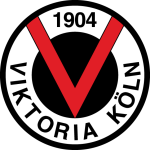 FC Viktoria Koln
FC Viktoria Koln
|
32 | 11 | 9 | 12 | 49 | 54 | -5 | 42 |
| 14 |
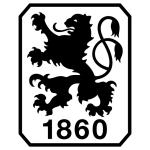 TSV 1860 Munich
TSV 1860 Munich
|
32 | 12 | 5 | 15 | 36 | 34 | 2 | 41 |
| 15 |
 Arminia Bielefeld
Arminia Bielefeld
|
32 | 9 | 10 | 13 | 43 | 44 | -1 | 37 |
| 16 |
 Waldhof Mannheim
Waldhof Mannheim
|
32 | 10 | 7 | 15 | 44 | 51 | -7 | 37 |
| 17 |
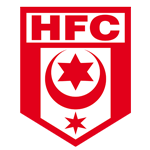 Hallescher FC
Hallescher FC
|
31 | 9 | 5 | 17 | 45 | 60 | -15 | 32 |
| 18 |
 MSV Duisburg
MSV Duisburg
|
31 | 7 | 8 | 16 | 31 | 46 | -15 | 29 |
| 19 |
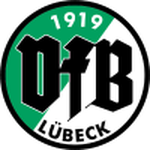 VfB Lubeck
VfB Lubeck
|
32 | 5 | 12 | 15 | 27 | 56 | -29 | 27 |
| 20 |
 Freiburg II
Freiburg II
|
32 | 6 | 5 | 21 | 30 | 56 | -26 | 23 |
About VfB Oldenburg
VfB Oldenburg is a historic German football club based in Oldenburg, Lower Saxony. Established in 1897, the club has a rich history and has been a significant part of German football culture for over a century.
VfB Oldenburg has had a fluctuating journey through the tiers of German football. The club enjoyed its most successful period in the late 1970s and early 1980s, when it competed in the 2. Bundesliga, the second tier of German football. However, financial difficulties and inconsistent performances led to a decline in the club's fortunes, and it has spent much of the past few decades in the lower tiers of the German football system.
Despite these challenges, VfB Oldenburg has always been known for its strong community spirit and passionate fan base. The club's home games are held at the Marschwegstadion, a stadium with a capacity of over 15,000 spectators, which often fills to capacity for important matches. The club's fans are known for their loyalty and dedication, supporting the team through both its highs and lows.
Over the years, VfB Oldenburg has also developed a reputation for nurturing young talent. The club's youth academy has produced several players who have gone on to have successful careers in professional football. This commitment to youth development is a key part of the club's philosophy and has helped to sustain it through difficult periods.
While VfB Oldenburg may not have the same level of recognition or success as some of Germany's bigger clubs, it remains a beloved institution in Oldenburg and the surrounding region. The club's history, community spirit, and commitment to youth development make it a unique and important part of German football culture.
In recent years, VfB Oldenburg has been competing in the Regionalliga Nord, the fourth tier of German football. Despite the challenges and setbacks, the club continues to strive for success, with the aim of one day returning to the higher tiers of German football. Regardless of its position in the league system, VfB Oldenburg continues to play a vital role in its community, fostering a love of football and providing a platform for young players to develop their skills.
In conclusion, VfB Oldenburg is a club with a rich history and a strong community spirit. Its journey through the tiers of German football has been marked by both success and struggle, but through it all, the club has remained a beloved institution in Oldenburg and a significant part of German football culture.















